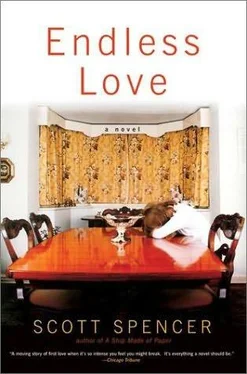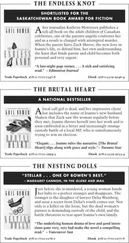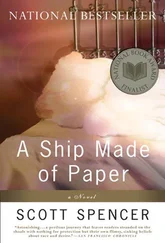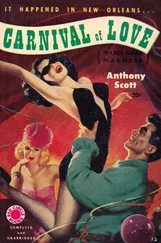“Let’s see. You already know where Sammy is. You should see him, David. What a solid oak. He’s literally the most responsible person I know. I suppose that story about him tearing up the check makes him out to be a hothead…but that’s not Sammy at all. Sammy always negotiates from a position of strength—quiet strength. He’s so obviously blessed; very few people feel as at home on earth as he does. Compared to him, the rest of us are like freaky little wayfarers, hangers-on. Sometimes I think the world was made for Sammy and maybe five thousand others to exercise their intelligence in.”
“What’s Beaumont, New York, like?” I asked. I don’t know why I chose to ask that—probably nervousness. I leaned forward, my folded hands dangling between my knees.
“A prep-school town. Dirty river, red brick factory, slanting houses, townies, orchards. And Keith. You know where Keith is, too. I’m not telling you anything you don’t know, or half- know. In Bellows Falls. He’s got a job in a furniture factory and he’s learning a lot and mashing his fingertips as well. He makes chairs, rocking chairs. Strange, from Keith. He never had much interest in building things. I think he started trying to build something when he was a little boy, but Hugh—old helpful Hugh—tore the hammer out of his hands, to show him an easier way, of course, and I suppose it was a symbolic castration since that’s my last memory of Keith building anything.”
But he was building a stereo receiver the night I looked in from the porch, the night I saw you all…the night I set the fire. I looked away, uncertain if Ann remembered this or not, wondering if she was teasing me deliberately.
“Electronic things, once in a while,” she went on. “But no birdhouses or rabbit traps, or anything that took saws and hammers. But now he’s quite adept. He’s built most of his own furniture, too. He lives in a rotten but really beautiful old farmhouse. Keith’s idea was to make it the new family headquarters but so far none of us have taken him up on it. He’s got a few chickens running around out back complaining about anything and everything and also, wonder of wonders, a full-time lady, a girl from town. Sort of an Ingrid Ochester type, you know, Hugh’s girl. Passive, compliant, a little sad, but satisfied with herself and stubborn as a wart. I shouldn’t say that. It sounds as if I resent her and I don’t, not Keith’s girl, I mean. She’s very good for Keith and if she’s a little drab then so is he, as I’ve always known. He’s very lucky to have someone who cares about him.
“And Jade is well, in school, studying ethology, as of the last time, that is. She’s given to changes of mind, threatens constantly to drop out of school and, receiving no objections from me or Hugh, decides each time to stay on.”
“What school?”
“And” continued Ann, raising a finger to silence me, “Hugh. Hugh is still off rattling around the USA, leading a life of utterly passé bohemianism. It’s in its last stages, however. Come September they go to live in Utah with this fellow named Whitney St. Martin—or who calls himself that, at least. I’m sure it’s a made-up name. He probably has a long and very tacky police record, Whitney. It’s an experimental community, set in a hundred or so barren acres. Hugh will be the doctor. The place is called Autonomy House. Did I already say that? Autonomy House. It’s for professional people only, drug-free, no alcohol. Teachers, lawyers, doctors, architects, writers, I suppose writers. I think Hugh mentioned there would be writers. Maybe he was including poor Ingrid in that category, though I should think doctor’s mistress would be profession enough.
“They’ll all live in those Buckminster Fuller-type domes and live the life of professionals in an ideal community. According to Hugh, it’s not a think tank but…a do -tank. Do-tank! It makes me want to commit serious acts of terrorism. Not only the goopiness of it, but Hugh’s actually paying for this. That’s Whitney St. Martin for you. Each of the carefully chosen and screened professionals is assessed thirty-five thousand dollars for the privilege of living in this white-collar utopia. Supposedly, Hugh will be able to charge people who use his services, but only nominally. And there’s a lot of expense besides the thirty-five thousand, which is only an entrance fee. The economics are terribly complicated and I promised myself not to learn much more about it since the little I already know turns my intestines into Belgian lace.
“You see? Everyone is doing quite well. Our independence is—I don’t know what to call it. Staggering. I think I’m turning into a Keith; I can’t believe how seldom we need each other.”
“What school does Jade go to?”
“David.”
“OK. I’m sorry. I know I shouldn’t ask.”
“That’s right.”
“I can’t exactly help it.”
“How convenient.”
“It’s not that.”
“It doesn’t matter. I just don’t want you to ask. I don’t want you to hint or pry. I don’t want you poking around or trying to trick me or playing on my thoroughly mixed feelings about you. It’s…it’s very likely that if I did tell you about Jade you wouldn’t feel very good about it. But you must realize that, don’t you?”
I felt her words like a blow to the face. Injury and humiliation. The helplessness of my circumstances never failed to astonish me; the life of constant emotional peril never lost its peculiar terror. I felt abruptly close to tears. Here at last with Ann, I realized I was only half capable of listening to her. If the deliberate meanness of the sudden mystery she’d created could cause me such pain, where did I ever get the idea that I could listen rationally to the truth?
It was understood that my life was not to be discussed. It was, after all, only a mass of loneliness and the least attractive kind of solitude, whereas Ann’s was alive with struggle and readjustment.
I had always been more than eager to extend myself and show avid interest in every detail of Ann’s life—her first sexual encounter (a young doorman in her parents’ apartment house), what she did with the money she made from the first story she sold to The New Yorker, why she got the willies whenever she shopped at Marshall Field, and the gauzy waking dreams she had when she was stoned and listening to Vivaldi, some of which inspired her to write haikus onto notecards, notecards that would end up in the trash but not before I was given a chance to read them. I never felt neglected or taken too lightly. In a world filled with people, in a house bursting with visitors, she had chosen to lay out the pieces of her life (delicately, artfully, coyly) in front of me. It was my reactions she courted, my fledgling sensibilities she had selected to interpret the mysteries of her character. I felt immensely privileged; I was certain there were things she told me that no one else knew—she confided in me not so much the depth of her private thoughts as their tone. Hugh and others might have known her secrets in more detail, but I was given a chance to learn the exact pitch in which she spoke to herself.
There was nothing about her, nothing that she said (or didn’t say) that struck me as anything less than vital. And I didn’t study Ann because I was in love with her daughter. I didn’t devote myself to understanding Ann as a way of foreseeing the future of my lover’s character. I don’t think it ever really occurred to me that Jade was going to be like Ann, any more than I thought I would be like Arthur or Rose. Ann was unique, unduplicatable, wry, secure, haughty, vulnerable, and so explicitly calculating that her every word and gesture, in my eyes at least, was incandescent with significance.
Читать дальше












